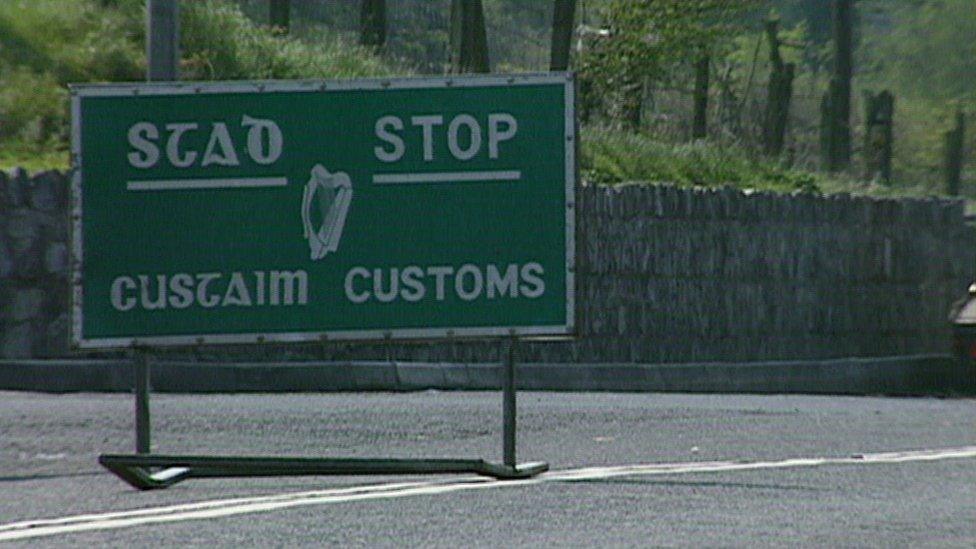Brexit: Kenny calls for preservation of 'seamless border'
- Published
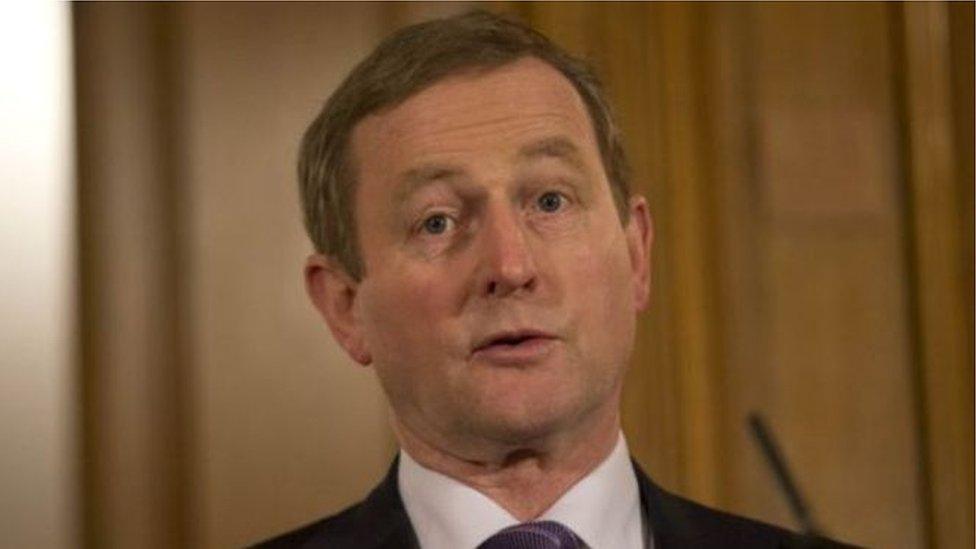
The Taoiseach (Irish Prime Minister) has re-iterated that he wants "a preservation of the seamless border that is there now".
Outlining her plans for the UK leaving the EU, Theresa May said Brexit means leaving that union.
Enda Kenny said he welcomed the "greater clarity" provided by Theresa May in her address on Britain's planned approach to the Brexit negotiation process.
However Sinn Féin warned exiting the European Customs Union creates a "hard border on the island of Ireland".
Mrs May said she would now seek to negotiate a new customs deal with the EU, which would allow tariff-free trade to continue.
Mr Kenny told RTÉ's Nine News: "We agreed when I went to Dublin before to preserve the common travel area.
"If you introduce a trading arrangement in a new form we will have to find an answer to that but we have agreed there will be no return to the hard border. Nor do you want customs posts every 100 yards or military installations.
"We want a preservation of the seamless border that is there now".
"In terms of the trading relationship that takes place that is a question that will have to be answered and an answer will be found".
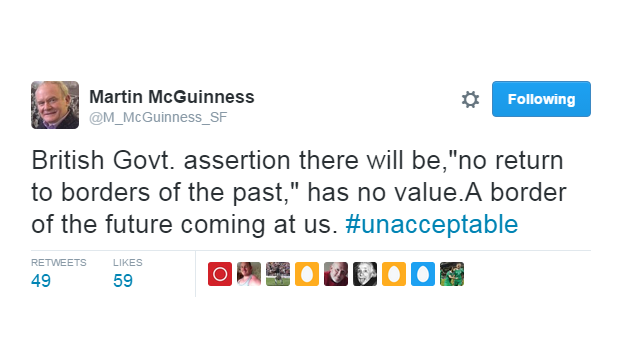
Posting on social media, Former Deputy First Minister Martin McGuiness said "a border of the future is coming at us".
Currently there is tariff and paperwork-free trade between the UK and the Republic of Ireland.
The prime minister said: "Full membership of the customs union prevents us from negotiating our own comprehensive trade deals."
However, if a deal cannot be achieved it could lead to the return of some form of customs checks along the Irish border.

What is a customs union and why does it matter?
A customs union, external is a form of trade agreement between two or more countries.
It means they decide not to impose tariffs (taxes on imports) on each other's goods and agree to impose common external tariffs on goods from countries outside their customs union.
Setting common external tariffs is what distinguishes a customs union from a free trade area, external.
The key argument for leaving the customs union is that it will allow the UK to negotiate its own trade agreements.

Reacting to the Brexit speech, Sinn Féin MLA John O'Dowd said: "Exiting the single European market, exiting the customs union, creates a hard border on the island of Ireland.
"Warm words, soft words from Theresa May mean nothing."
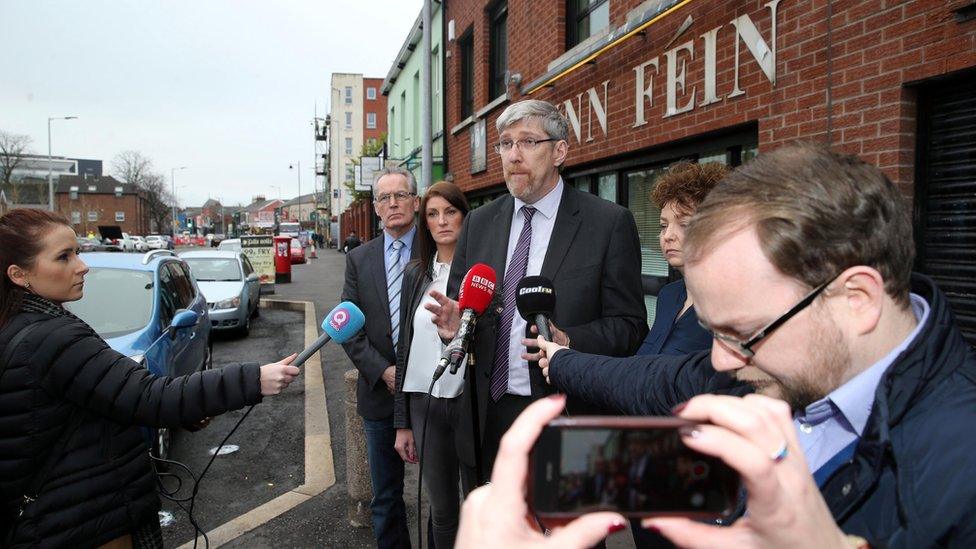
Sinn Féin MLA John O'Dowd said it was clear the views of people in NI were being ignored
He added: "Her intentions to leave the Single European Market and her intentions to leave the customs union are going to have a detrimental impact on the economy in the north and across this island.
"It's clear today from Theresa May's Brexit statement that the views and opinions of the people of north have been completely ignored."
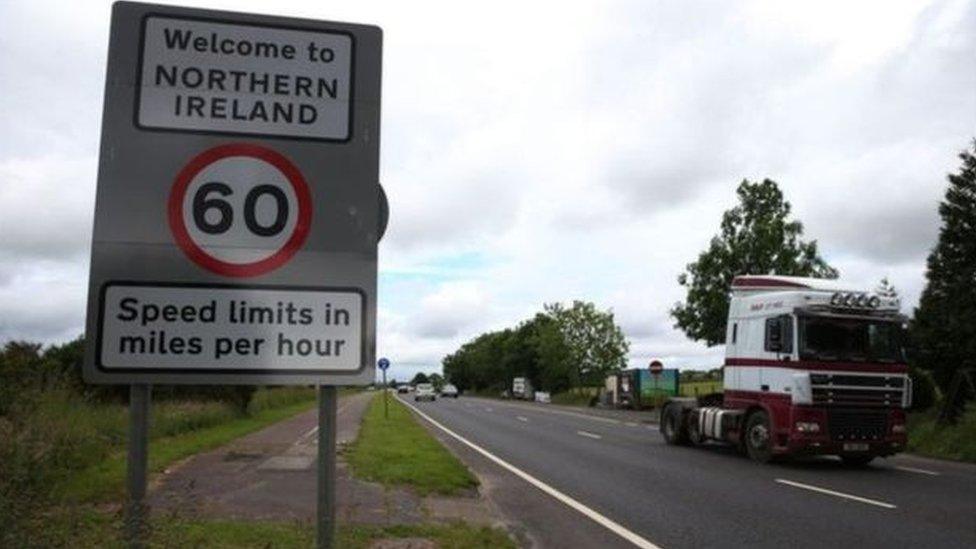
The prime minister said maintaining the common travel area between the UK and Republic of Ireland would be a priority during Brexit negotiations
Alliance Party deputy leader Stephen Farry described Mrs May's speech as "catastrophic for Northern Ireland".
"Any departure from the customs union and the single market will necessitate a formal border either across the island of Ireland or down the Irish Sea."
He added: "A one-size-fits-all Brexit is just not practical. There are too many factors and circumstances particular to Northern Ireland.
"Yet, these have not yet been recognised and respected by the UK government."
'Important priority'
During her speech earlier on Tuesday, the prime minister said maintaining the common travel area between the UK and Republic of Ireland would be a priority during Brexit negotiations.
She said: "No-one wants a return to the borders of the past.
"Our guiding principle must be to ensure that as we leave the European Union no new barriers to living or doing business within our own union are created.
"The United Kingdom will share a land border with the EU and maintaining that common travel area with the Republic of Ireland will be an important priority for the UK in the talks ahead."
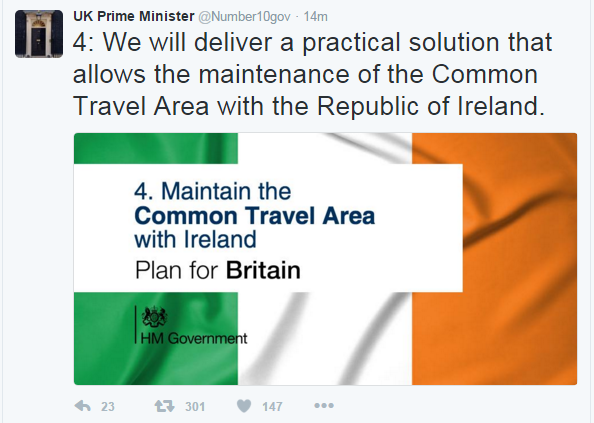
In a statement, a spokesperson for the Irish government said that while the prime minister's comments may be seen as a warning of a "hard Brexit", Dublin has been preparing for all possible models of future UK-EU relations.
- Published17 January 2017
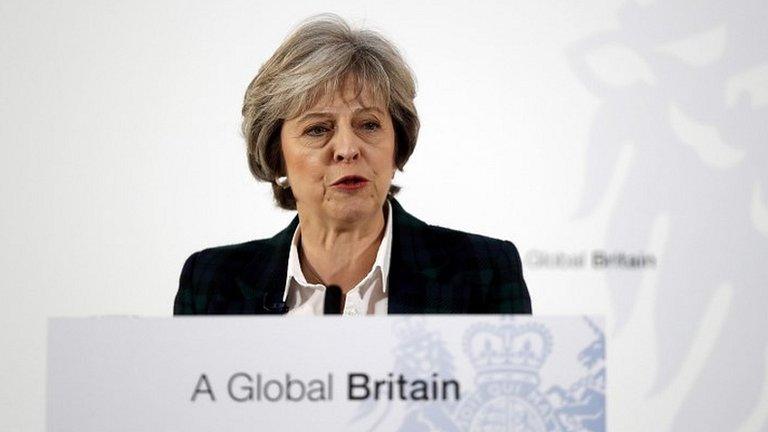
- Published16 January 2017
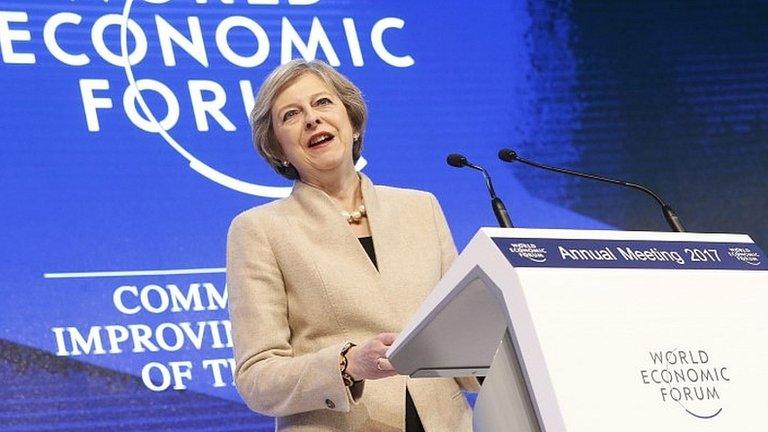
- Published28 July 2016
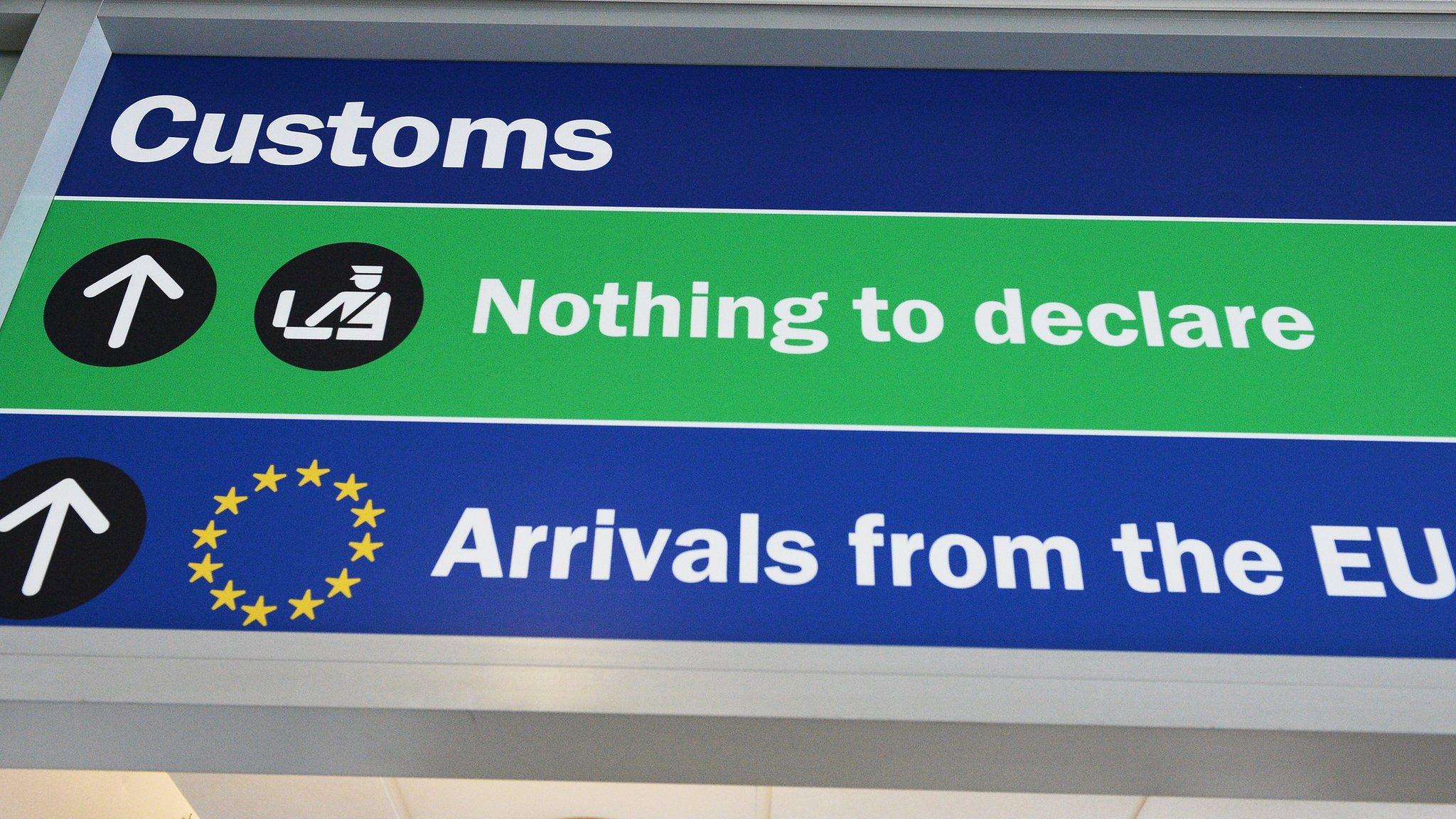
- Published17 November 2016
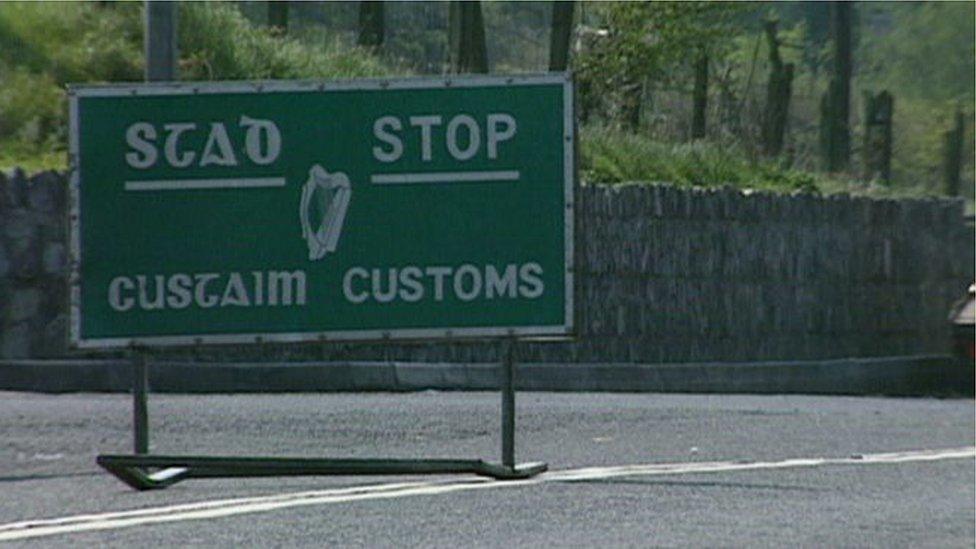
- Published5 September 2016
